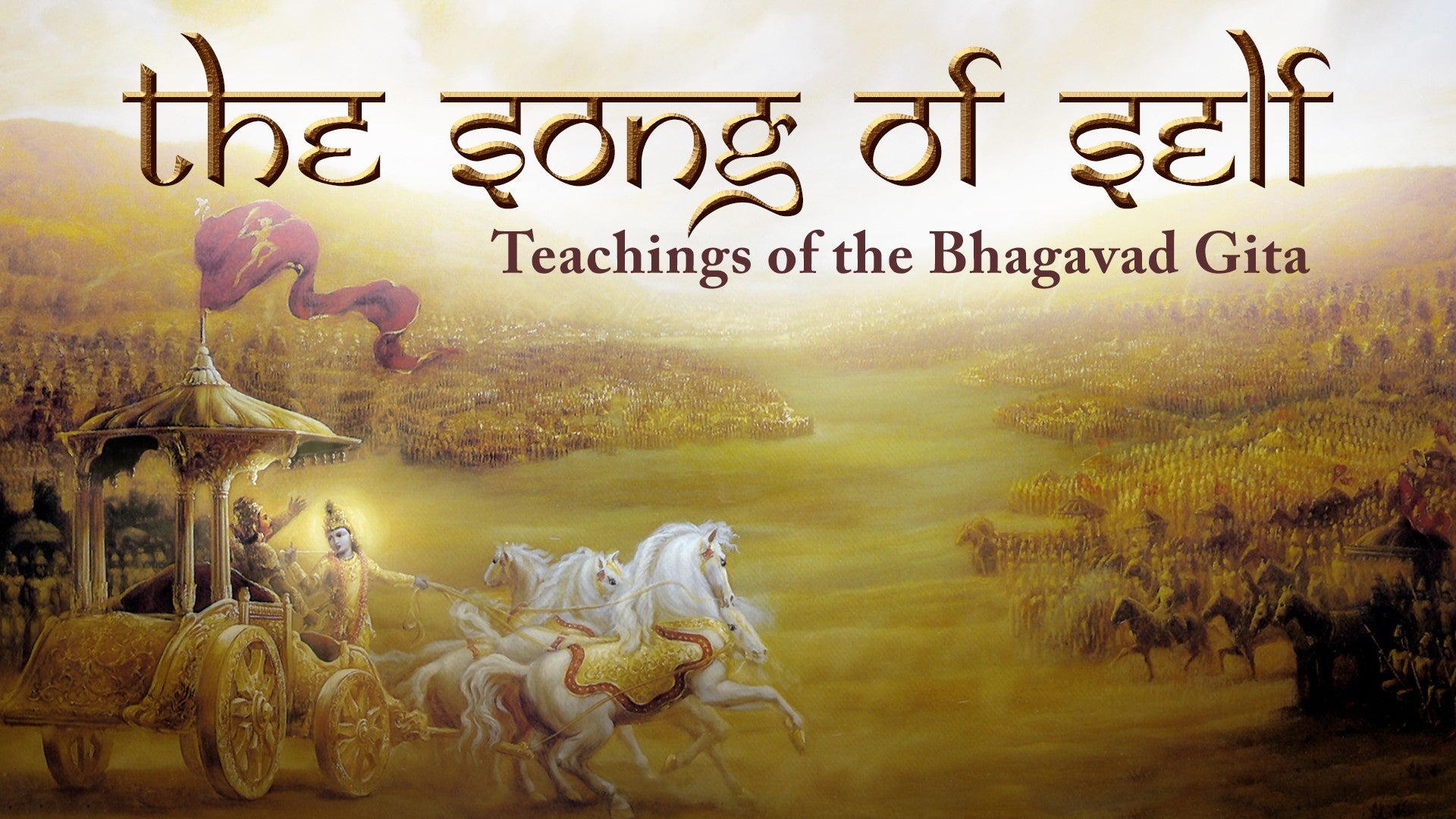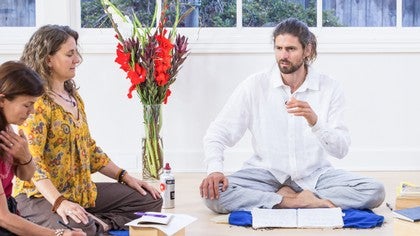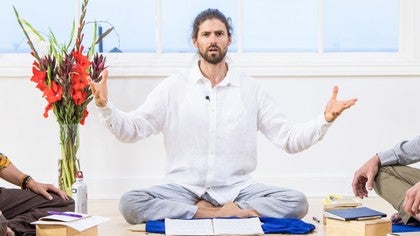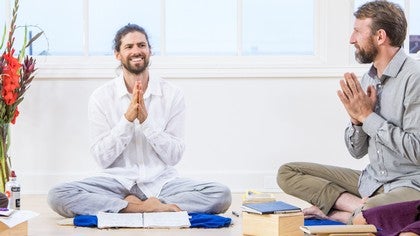Description
About This Video
Transcript
Read Full Transcript
So now, after that rather inspiring 46th verse, we come to the 47th, which is, it's a very, well there are a lot of very famous verses in the Gita, but this one is particularly famous I think, certainly in my experience, and I've found it's a verse that many people who read the Gita in translation, this is one that really stands out, even in the translation, Krishna says, karmani eva di karste mapa li shukarachana ma karmapala hetur bure mati sangustva karmani So here we have four sentences in the Sanskrit, first sentence, basically, te karmani eva adhikaraha te you, you have adhikaraha, you have sovereignty over your actions, you have sovereignty over what you do, and this is a really key teaching that Krishna emphasizes many times through the Gita, you are the sovereign of your own experience, you are the sovereign of your own actions, as a human being, you can, to some degree certainly, choose and determine how you meet reality, and what you do. But, karachana api palaiso adhikaraha ma, ma palaiso karachana But, while you have sovereignty over your actions, you have absolutely no sovereignty or control or authority over their outcomes, over their fruits, none at all. And is this true? We all know it's true, you might have experienced, sometimes we put in so much effort and nothing happens. Sometimes we put in a lot of effort and lots of things come.
Sometimes we do nothing at all and so many things come. We really have no idea. So Krishna, we see again, is so pragmatic, so down to earth, you do have some choice over how you meet what life offers you, what the universe throws at you. But, you have no idea of the consequences of your actions really. And is this idea in yoga and in many spiritual traditions, the idea that when we do something, it's like this action reaches out to the furthest parts of the universe and then may come back towards us.
We don't know how that's going to happen. They say the ways of action, the ways of karma are unfathomable for a human being. So yes, you can determine, you can make choices about how you act, be the sovereign of what you do, but don't get attached to the outcomes because you have no control over that. Third section, he says, ma karama pala hai tu albuhu, do not be the reason for the pala, the fruit of action. As soon as people think, whoa, whoa, whoa, whoa, what's that mean?
First two parts I get, okay? Be the sovereign of your own experience, but don't be attached to the outcomes because you have no control over the outcomes. That makes a lot of sense. But do not be the cause or the reason for the fruits of actions. Now the way I understand it is that sometimes in life we start to see that if we make certain types of choices, we get more and more bound.
We get weighed down by it. So the way I understand this part of the verse is once you've come to an understanding that a certain type of choice or a certain type of action just leaves you more enmeshed in a mess, just makes you feel worse, then don't do that. So once you know that certain types of action are just going to cause you to feel more bound, then you can make a more skillful choice. And then the last part, Akarmani Ma Astu, do not rest in inactivity. Doing nothing is not an option.
Sometimes people think, oh, well, I don't know what to do, so just do nothing. We already spoke about this. If you feel you do know what you need to do and you don't do it, it's actually going to cause you to suffer. But also, at a more kind of basic level, there's the idea, and Krishna elaborates this beautifully in chapter 3 all about Karmayoga. He says, when you're a human being, you cannot but act.
We can sit in a semblance of stillness, but it's only a semblance of stillness. Our hearts are beating. Breath is happening. So much transformation is happening inside the body, so much movement, so much action. And the very choice to sit still is itself an action.
The very choice to try to be in inactivity is itself a choice, an action. And so is the idea. We cannot escape action because action is our very nature as a human being. It's expansion and contraction. It's a breath cycle.
It's a heartbeat. It's movement. It's change. We cannot avoid it. So Krishna says, action is inevitable.
So when something's inevitable, don't get upset about it. Don't get overwhelmed by it, but be pragmatic about it. You can determine whether your actions lead you towards greater integration or not. So be the sovereign of your own experience. It's easy in life to be a slave of your conditioning.
Krishna says, forget about being a slave. Be the king or queen you were born to be and take responsibility for what you do here and now. And you've nothing to wait for. Now is the time. You are the sovereign of your own experience, so own that.
But take care not to fall into the trap of getting worried about the outcomes. You never know what the outcomes will be. Similarly, once you do know that certain types of action just lead you to pain, well, be sensible about it. And don't think that inactivity is even an option. Be realistic.
The Song of Self: Bhagavad Gita: Chapter 2
Comments

You need to be a subscriber to post a comment.
Please Log In or Create an Account to start your free trial.










